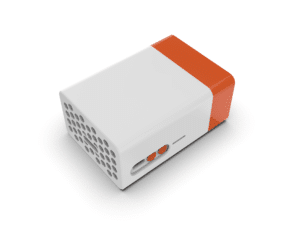AN ULTRA-AUTONOMOUS PORTABLE DIGITAL LIBRARY.
The Ideas Cube creates a Wi-Fi hostpot to which users can connect with the help of a smartphone, tablet or computer, in order to access thousands of educational , cultural or
training resources..
In a library, school or medical clinic in rural territories, the Ideas Cube gives access to contect in the form of text, videos or online courses and authorises a quarantine of
simultaneous connections. When connected to the Internet, the Ideas Cube can be updated to provide new content. The data and frequency of utilisation are arranged and
collected to best correspond to the needs in the target terrain.


